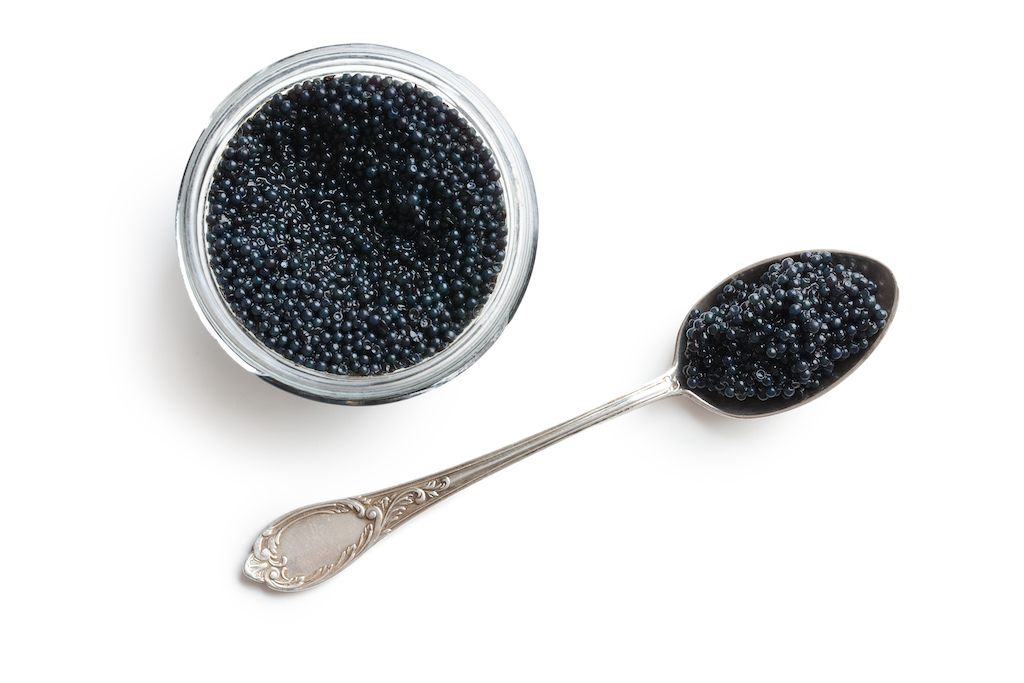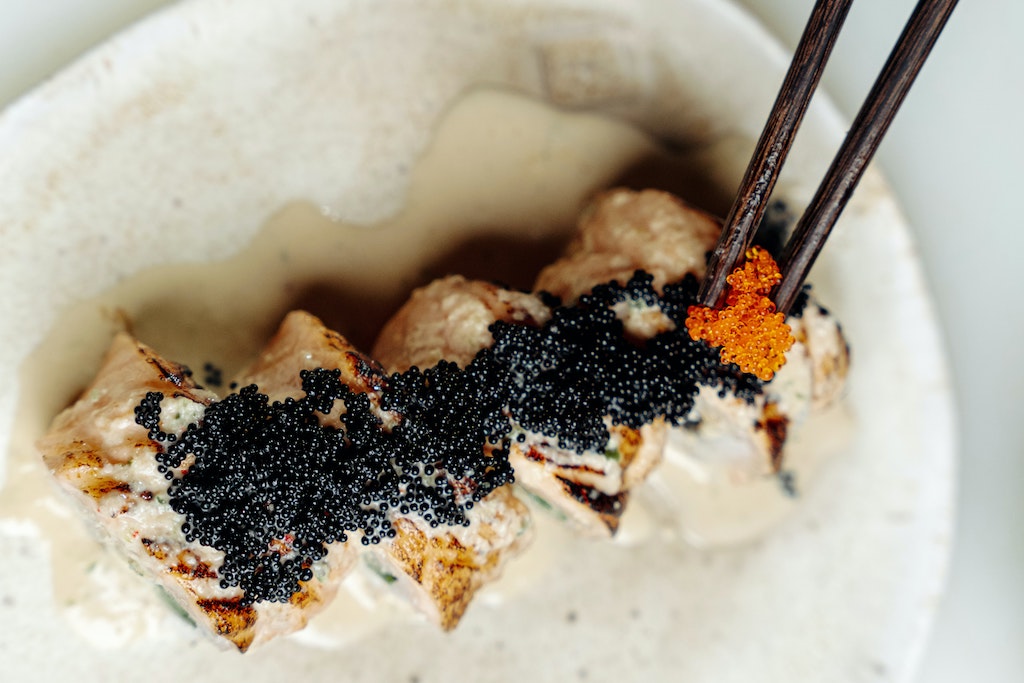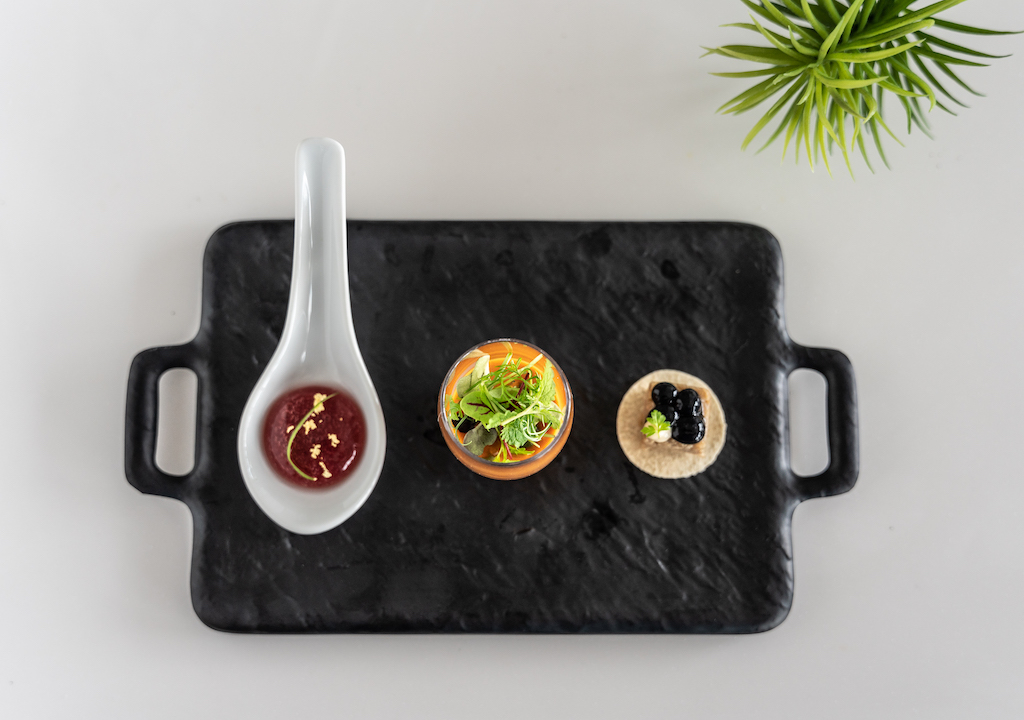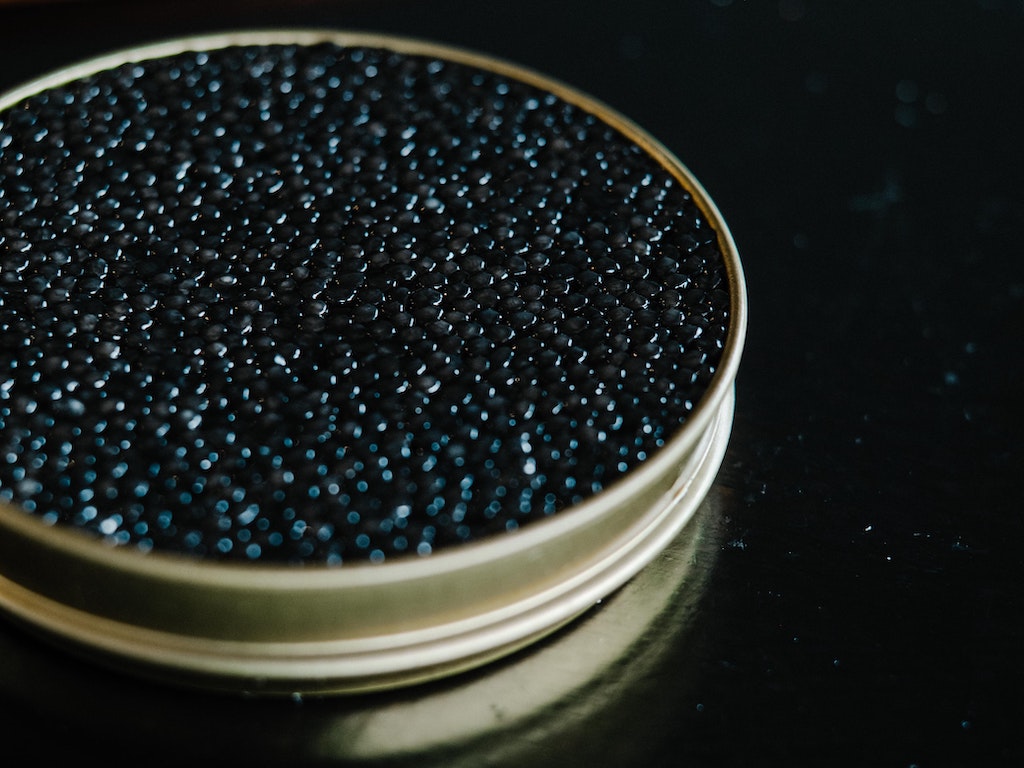3 Mins Read
You might have heard about cellular agriculture being used to create cultivated steak or cultured chicken bites, but now, scientists are focusing on the luxury seafood delicacy: caviar. In the Netherlands, a new research project is now underway to develop cell-based caviar to help save the endangered sturgeon fish.
Scientists at Wageningen University & Research (WUR) and Dutch startup Geneus Biotech have just formed a new research partnership to create cell-cultivated caviar. The new collaboration, led by Dr. Arjan Palstra of WUR and Geneus CSO Dr. Sundararaghavan Pattabiraman, is tackling the plight of the Beluga sturgeon, a fish species that is now highly endangered due to humanity’s appetite for its revered unfertilised eggs or roe.

Cell-based caviar
In this new R&D project, the researchers are developing what they will call Magiccaviar, a cell-cultured fish roe product made from in vitro grown oocytes. The cells will be taken from the Beluga sturgeon and the Acipenser ruthenus or Sterlet sturgeon species, which is closely related to the Beluga sturgeon but is less endangered and is smaller.
“A closely related sturgeon species is used to develop the methods in order to minimize the adverse impact on a very rare species,” explained Geneus board member Dr. Muriel Vernon. “Since the two species are phylogenetically close, transfer of the results obtained to beluga is expected to be relatively effortless.”
In addition to tackling species extinction associated with caviar production, cultivated caviar will also alleviate the issues of supply chain transparency. With demand for the luxury delicacy far outstripping supply, especially as traditionally farmed sturgeons require a quarter-century spawning time frame, caviar has become one of the most counterfeited seafood products.

“Magiccaviar joins the cultivated fish and seafood revolution that offers viable solutions to producing seafood without the need to fish, breed, and process animals,” says Vernon, who also revealed that Geneus is now applying to patent the proprietary process it uses to cultivate caviar.
Other startups also working on cell-based seafood solutions include Hong Kong’s Avant Meats, Singapore-based Shiok Meats, and US food techs BlueNalu, Wildtype and Finless Foods, with cultivated species ranging from crustaceans like lobster and crab, to sushi-grade salmon and another revered delicacy, fish maw.

Cultivated revolution
Geneus says its latest project is just part of its overall mission to utilise cellular agriculture to disrupt unsustainable industries, whether it be food or fashion. The Dutch startup recently debuted Furoid, its first biomaterial product that takes aim at fur production.
To develop Furoid, the company partnered with scientists at the University of Amsterdam, and has created fur that is molecularly identical to the real deal.
Combining cells with growth factors and biomaterials, Geneus says it has managed to cultivate the natural tissue properties found in real animal fur, which can then be 3D bioprinted into a 100% cruelty-free fur product. Beyond fur, the company wants to recreate wool using the same technology.
The momentum in the cellular agriculture industry has grown significantly in recent months, with more companies now banking on the sector. Just last week, three of Switzerland’s largest food companies, Givaudan, Bühler and Migros, announced a new joint venture dedicated to developing, producing, and launching novel cell-based protein products.
Lead image courtesy of Pexels.




